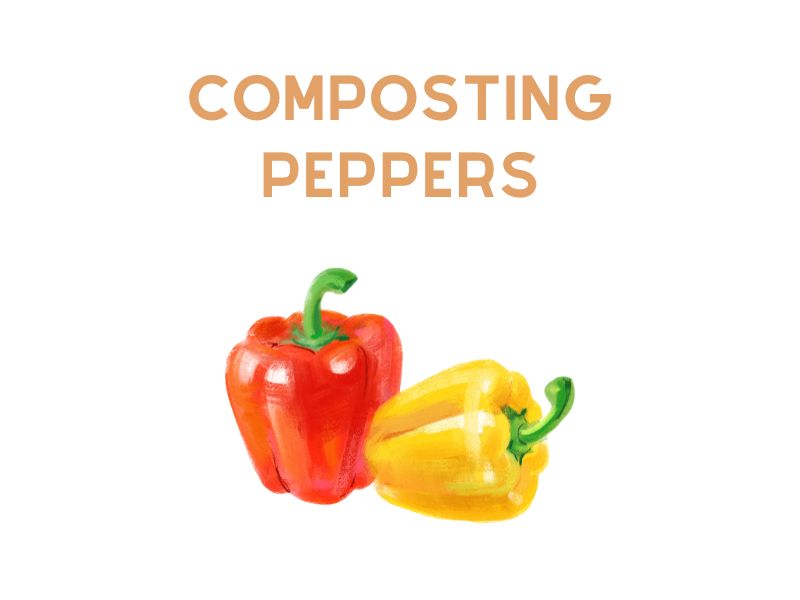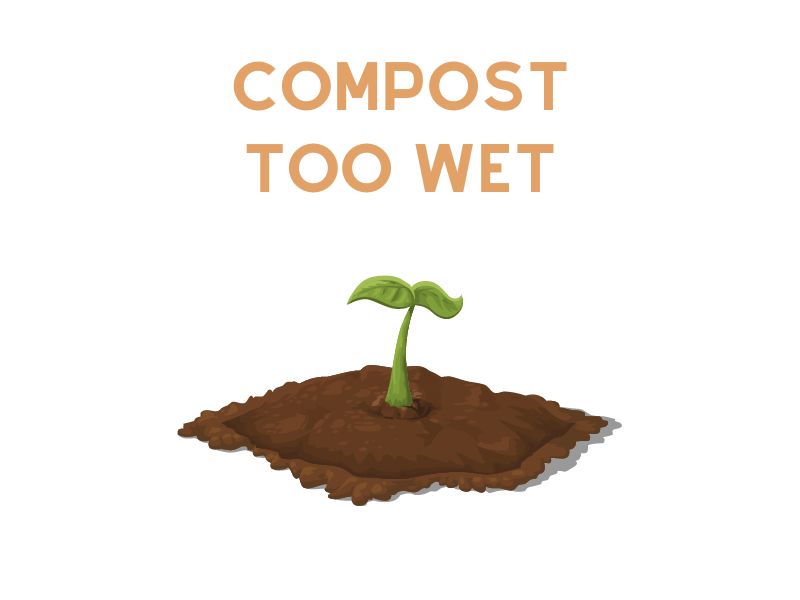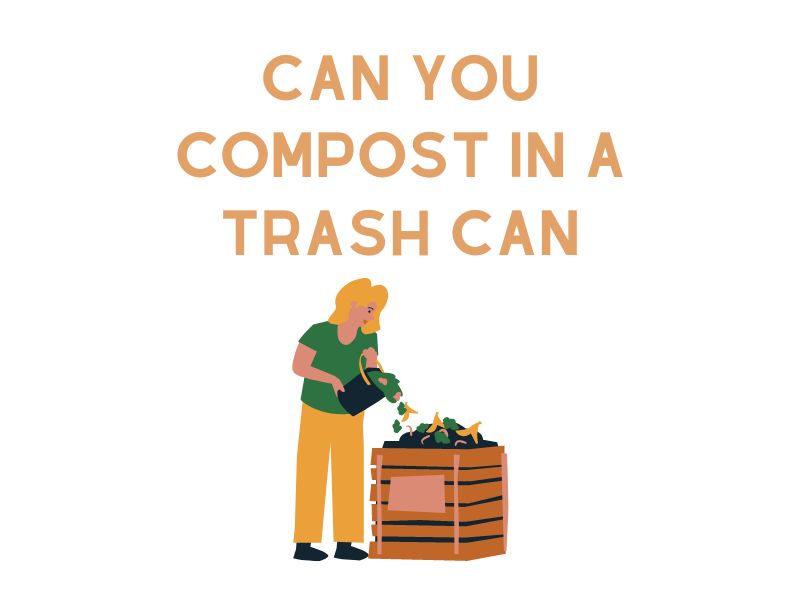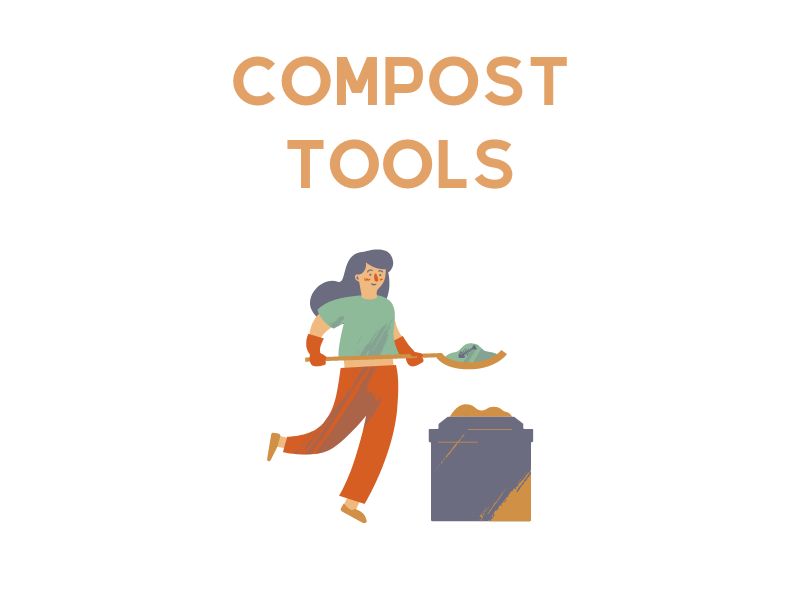Composting, an ecologically beneficial practice, has gained traction in homes worldwide as a response to increasing awareness about the pressing need to curb household waste and create a more sustainable living environment. The process of composting involves the natural decomposition of organic waste to produce compost, a nutrient-rich soil conditioner. It’s Mother Nature’s own recycling system, turning the discarded into the desirable, enriching the soil, and promoting healthier plant growth.
Within the scope of compostable materials, we often find ourselves questioning the compostability of various kitchen scraps, especially those that fall outside the typical fruit and vegetable peels. One such commonly queried item is peppers. From the mild bells to the fiery jalapenos, peppers are a culinary favorite, contributing their distinct flavors and vibrant colors to a variety of dishes across cultures. But once the cooking is done and only the pepper scraps remain, the question that often pops up is – can these peppers be composted?
Understanding the compostability of peppers not only helps us to decrease the amount of waste going to the landfill but also contributes to creating a rich and nourishing soil amendment for our gardens. This comprehensive guide aims to shed light on the subject, taking you through the nature of peppers, their compatibility with composting, the process of composting peppers, and potential issues that might arise. So, let’s delve into the vibrant world of peppers and their place in our compost bins.
The Nature of Peppers
Peppers, from the family Capsicum, are an integral part of culinary traditions worldwide, enhancing dishes with their diverse range of flavors, colors, and heat levels. Their use in cooking extends beyond just the flavor, contributing significant nutritional value as they are rich in vitamins and minerals. But what about their post-usage life? Do these flavorful, nutrient-rich fruits have a place in our compost piles?
Peppers come in a vast array of varieties – from sweet bell peppers to moderately spicy jalapenos to scorching ghost peppers. Despite their differences in taste and heat, all peppers share a similar biological structure. They are the fruit of Capsicum plants, typically hollow with a cavity housing numerous seeds. The outer skin or pericarp is usually tough and shiny, while the inner part or placenta where the seeds are attached is softer.
When considering their compostability, the organic nature of peppers, like many other fruits and vegetables, makes them a likely candidate. They are biodegradable and can decompose under the right conditions, breaking down into simpler organic materials. Their composition includes water, fiber, and an assortment of nutrients – all of which could potentially contribute to a rich compost pile.
However, the question is not just about whether peppers decompose. It’s also about how they do so, how long it takes, what they contribute to the compost, and if there are any potential issues to be aware of. To understand this, let’s delve deeper into the composting process and the place of peppers within it.
Can You Compost Peppers?
The process of composting is a careful balance of different types of organic materials that together create a favorable environment for decomposition. These materials typically fall into two categories: green materials, which provide nitrogen and include items like vegetable scraps, coffee grounds, and grass clippings, and brown materials, which provide carbon and include items such as leaves, straw, and paper. When we contemplate the question, “Can you compost peppers?” we must consider where they fit into this mix.
The answer, to clarify any doubts, is yes – you can absolutely compost peppers. Both the flesh and the seeds of peppers can be composted, contributing to the “green” materials in your compost pile due to their nitrogen content. The breakdown of these nitrogen-rich materials, balanced with the carbon-rich brown materials, results in compost that is teeming with nutrients. This is not only beneficial for enriching the soil but also contributes to a more sustainable lifestyle by reducing kitchen waste.
The heat and spice level of the peppers does not affect their compostability. From the mildest bell pepper to the hottest Carolina Reaper, all peppers are compostable. Capsaicin, which is the compound that gives hot peppers their heat, breaks down during the composting process and does not adversely affect the compost or the plants that will eventually benefit from it.
However, it’s essential to remember that while peppers can be composted, they should be properly incorporated into your compost pile to ensure an efficient and trouble-free composting process. Let’s delve into the specifics of composting peppers in the next section.
How to Compost Peppers Properly
Composting peppers can be a relatively straightforward process, but it does require some specific steps and precautions to ensure that your compost pile remains healthy and efficient. Here is a more detailed guide on how to compost peppers properly:
- Prepare the Peppers: Before adding your peppers to the compost, it might be beneficial to remove the stems and seeds. While all parts of the pepper are compostable, the seeds may sprout new plants in your compost, and the tough stems can take a longer time to decompose. This step is optional and depends on personal preference.
- Chop the Peppers: Size matters in composting. The smaller the pieces, the faster they decompose. So, before you add your peppers to the compost pile, consider chopping them into small pieces. This increases the surface area for microbes to work on, speeding up the decomposition process.
- Add to Compost: Peppers, like other vegetable and fruit scraps, fall into the category of ‘green’ compost materials, contributing nitrogen to the composting process. When you add the chopped peppers to your compost pile or bin, make sure to balance them with enough ‘brown’ materials, which are high in carbon. These include dried leaves, straw, paper, or cardboard. Maintaining a balance between green and brown materials is crucial for efficient composting and avoiding unpleasant smells or attracting pests.
- Maintain the Compost: Once the peppers are in the compost pile, it’s essential to maintain the compost properly. This involves regular turning or stirring of the compost pile to aerate it and ensure an even decomposition process. If the compost pile is too wet or compact, it might slow down the decomposition process or cause unpleasant odors. Turning the compost pile also helps to distribute the heat evenly, which is necessary for breaking down the materials and killing any potential weed seeds.
By following these steps, you can efficiently compost your pepper scraps and contribute to a healthier garden and a more sustainable world. However, there are a few potential issues you should be aware of when composting peppers, which we will discuss next.
Potential Issues with Composting Peppers
Composting peppers, like any composting practice, comes with its unique set of potential issues. While these should not discourage you from composting peppers, it is essential to be aware of them so that you can take the necessary precautions.
- Pepper Seeds: One potential issue with composting peppers, particularly hot ones, is that the seeds can often survive the composting process. Unlike the rest of the pepper, seeds are designed to withstand harsh conditions in order to germinate and grow a new plant. As a result, pepper seeds may sprout unexpected plants if you use your compost as mulch or in your garden beds. If you wish to prevent the likelihood of volunteer pepper plants, consider removing the seeds before composting the peppers.
- Pests: Peppers, like other kitchen scraps, have the potential to attract pests such as rodents, flies, or raccoons. This is more likely if the compost pile is not correctly maintained, if it is too wet, or does not have a proper balance of green and brown materials. Proper compost maintenance, including regularly turning the pile and ensuring a good balance of materials, will help to prevent this issue. Using a compost bin with a lid can also help deter pests.
- Odor: An improperly maintained compost pile can produce unpleasant odors, which might become more noticeable when adding materials like peppers. Ensuring a proper balance between green and brown materials, maintaining the moisture level, and regularly turning the compost pile can help to prevent odors.
Despite these potential issues, composting peppers can still be a beneficial practice. These issues can be easily managed with proper composting techniques and by being aware of the potential challenges. In the end, the benefits of composting peppers and other kitchen scraps far outweigh the potential downsides.
Composting Other Kitchen Scraps
Peppers are just one type of kitchen waste that can contribute to a nutrient-rich compost pile. There are numerous other kitchen scraps that you can compost, helping to reduce the amount of waste going to the landfill and enhancing the fertility of your garden soil.
- Fruit and Vegetable Scraps: Just like peppers, other fruit and vegetable scraps are prime materials for composting. This includes peelings, cores, leaves, stems, and seeds, although, like pepper seeds, some seeds may survive the composting process and sprout.
- Coffee Grounds and Tea Bags: These are also excellent additions to your compost pile. They contribute nitrogen, and coffee grounds can also help to neutralize the pH of your compost.
- Eggshells: While not a source of nitrogen or carbon, eggshells add calcium to your compost, which is a nutrient beneficial for plant growth. Rinse and crush them before adding them to the compost pile to speed up decomposition.
- Grains: Leftover bread, rice, and pasta can be composted. However, they should be used sparingly and mixed well into the compost pile, as they can attract pests.
- Old Spices and Herbs: Expired herbs and spices can be composted. They add variety to your compost pile and contribute to its nutrient content.
While composting can handle a wide variety of kitchen scraps, there are some items that should not be added to a compost pile. Meat, fish, dairy products, and oily or fatty foods can attract pests, produce foul odors, and slow down the composting process. Similarly, diseased or insect-ridden plants and weed seeds might spread issues to the rest of your garden if composted.
Understanding what can and cannot be composted is essential for maintaining a healthy compost pile and reaping the maximum benefits from this environmentally friendly practice.
Conclusion
In conclusion, composting is an incredible process that transforms everyday kitchen waste into valuable, nutrient-rich soil conditioners. By exploring the compostability of diverse kitchen scraps, such as peppers, we contribute to a more sustainable lifestyle while also enriching the health of our gardens.
The compostability of peppers, irrespective of their variety, provides a beneficial addition to our compost piles, contributing nitrogen and aiding in creating a balanced, nutrient-rich compost. Though composting peppers can present certain challenges, such as the potential for seeds to sprout or attract pests, these can be effectively managed with correct composting techniques and vigilance.
In the larger picture, peppers form just one component of our kitchen waste. Numerous other scraps – fruits, vegetables, coffee grounds, eggshells, grains, old spices, and herbs – all find their place in the compost pile, contributing to its diversity and nutrient content. However, awareness of what not to compost, such as meat, dairy, and diseased plant material, is equally important to maintain a healthy compost pile.
Ultimately, composting is an ongoing journey of learning, observation, and fine-tuning. With patience and practice, it not only helps in creating a healthier garden but also contributes to reducing waste and promoting a more sustainable environment. Therefore, next time you find yourself with pepper scraps after cooking, remember that they have a place beyond the trash bin – they can be valuable contributors to your compost pile and your garden’s health and prosperity.





